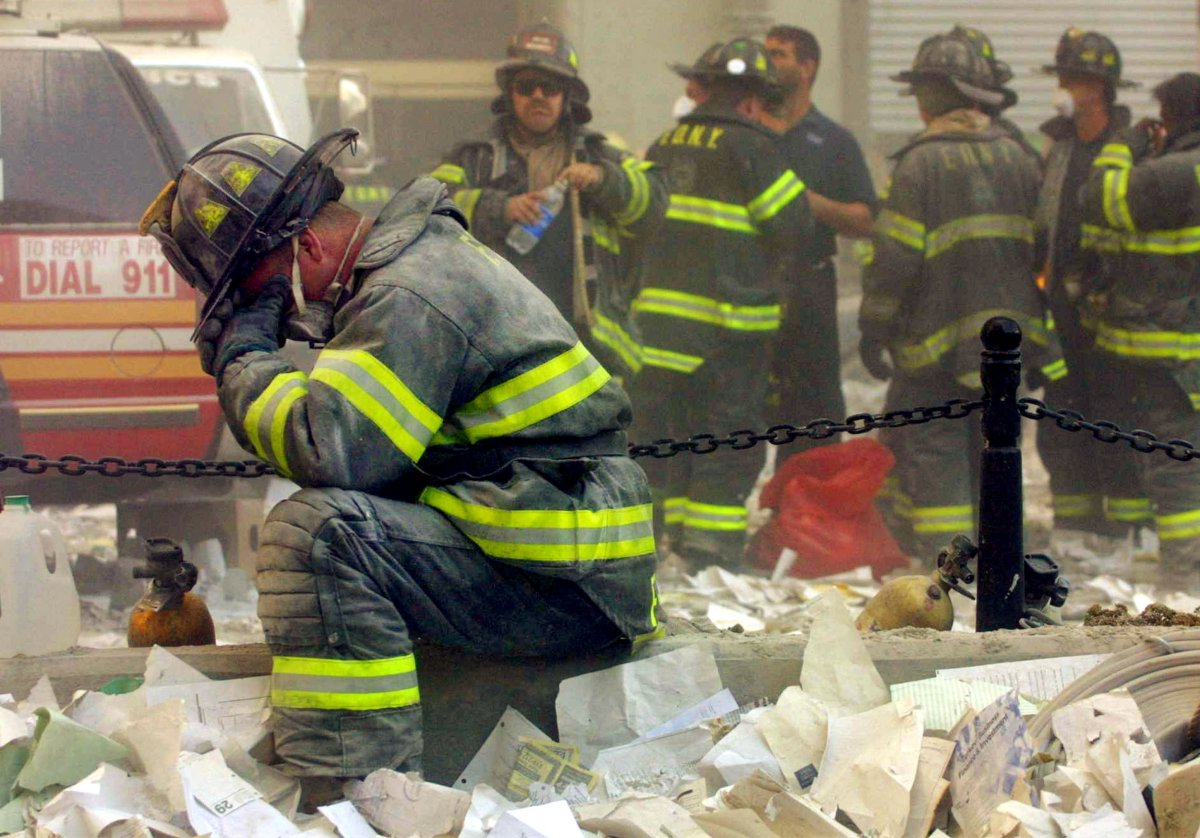A study of almost 10,000 firefighters who worked at the World Trade Center on September 11 has found those exposed to the dust which emerged from the destroyed buildings were more likely to develop heart problems.
As the World Trade Center Collapsed on 9/11, it created a huge cloud of dust. First responders, including firefighters, had to contend with the debris. Past studies on Fire Department of the City of New York (FDNY) firefighters linked the conditions at the site to long-lasting issues including obstructive airway disease, sinus problems, as well as mental difficulties like Post Traumatic Stress Disorder (PTSD).
As cardiovascular disease is the biggest killer in the U.S., the scientists wanted to find out how working on 9/11 may have affected the firefighters' heart health.
A total of 9,796 male firefighters took part in the study published in the journal JAMA Network Open. Researchers looked at how many FDNY workers involved in the operation following the attack developed a form of cardiovascular disease. This included whether they took heart medication, had heart attacks, stroke, unstable angina; whether they had coronary artery surgery or angioplasty; or died because of one of the above. The team also factored in when the firefighters arrived at the site, and how long they stay there. Some were assigned the building for over six months.
The longer the firefighters were exposed to the World Trade Center dust on 9/11, the higher their chance of developing cardiovascular disease, the authors found. And those who worked at the scene in the months following suffered similar consequences.
Those who headed to the scene first have a 44 percent higher risk of developing cardiovascular disease than those who arrived later.
Rachel Zeig-Owens, an epidemiologist at New York City Fire Department (FDNY) told Newsweek previous studies have found a link between exposure to the World Trade Center site and cardiovascular disease in other cohorts. However, this is the first time a link has been pinpointed just in the FDNY workers, and to this degree.
"The FDNY cohort is a relatively closed cohort of individuals who were healthy before the disaster that was formed prior to 9/11 therefore reducing the impact of a bias on our findings," she said.
"This research can help provide the best care for individuals exposed to the World Trade Center disaster and can help inform WTC [World Trace Center] health care policy," said Zeig-Owens.
Professor David J. Prezant, chief medical officer of the FDNY and lead author of the study, said in a statement: "The increase in risk was significant, even taking into account known CVD risk factors such as age, hypertension, elevated cholesterol, diabetes, and smoking."
Dr. Jennifer Ellis, chief of Cardiothoracic Surgery at NYC Health + Hospitals/Bellevue in New York and an American Heart Association expert who did not work on the study told Newsweek: "This is an important and powerful study. It looked at a large population and has consistent and thorough follow up."
However, she added: "As the authors stated it is not possible to distinguish specific WTC dust components, and the undefined and unquantified chemical components could be associated with the increased cardiovascular disease."

Uncommon Knowledge
Newsweek is committed to challenging conventional wisdom and finding connections in the search for common ground.
Newsweek is committed to challenging conventional wisdom and finding connections in the search for common ground.
About the writer
Kashmira Gander is Deputy Science Editor at Newsweek. Her interests include health, gender, LGBTQIA+ issues, human rights, subcultures, music, and lifestyle. Her ... Read more
To read how Newsweek uses AI as a newsroom tool, Click here.








